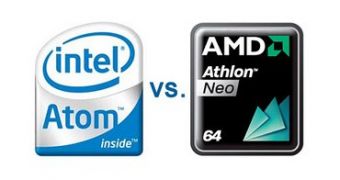Only a month ago, end-users worldwide likely could not believe it when Intel Corp. and Advanced Micro Devices announced settlement of all cross-patent and antitrust disputes. Still, the deal was made and now, just four weeks after it was decided, Intel is already delivering on the agreement: it has paid AMD the $1.25 billion. This payment represents the fulfillment of one of the antitrust settlement's conditions, the other being a five-year cross-patent agreement and dropping all antitrust accusations.
Receiving a check of $1.25 billion doesn't happen very often and already consumers are starting to speculate on how and when the CPU and GPU maker will start spending its prize money. Still, those who have been following the news know that the company does not intend to accelerate research and development projects, having already decided to, instead, use the money to reduce its outstanding debts.
The plans that Advanced Micro Devices announced for the $1.25 billion include cutting outstanding debts by $890 million and paying off the 7.75% yield debt due for payment in 2012. In addition, $500 million will be spent on purchasing senior notes, which the company hopes to later redeem for double the amount. By use of these methods, AMD plans to cut its total outstanding debts to only $485 million.
Still, in the long run, it could be said that Advanced Micro Devices will draw more benefits from the cross-patent agreement included in the settlement. The company's x86 license would have expired in 2010, which would have seriously impacted on the company's ability to continue manufacturing CPUs. Overall, AMD's situation seems to be growing brighter.
AMD end-users may be somewhat disheartened knowing that the chip and GPU maker won't be investing in R&D. Still, the company has already started to pick up the pace. AMD announced its intention to eventually become the only supplier of AMD-compatible chipsets and was even reported to be working on Thuban six-core processor, supposedly scheduled for release during the third quarter of 2010.

 14 DAY TRIAL //
14 DAY TRIAL //